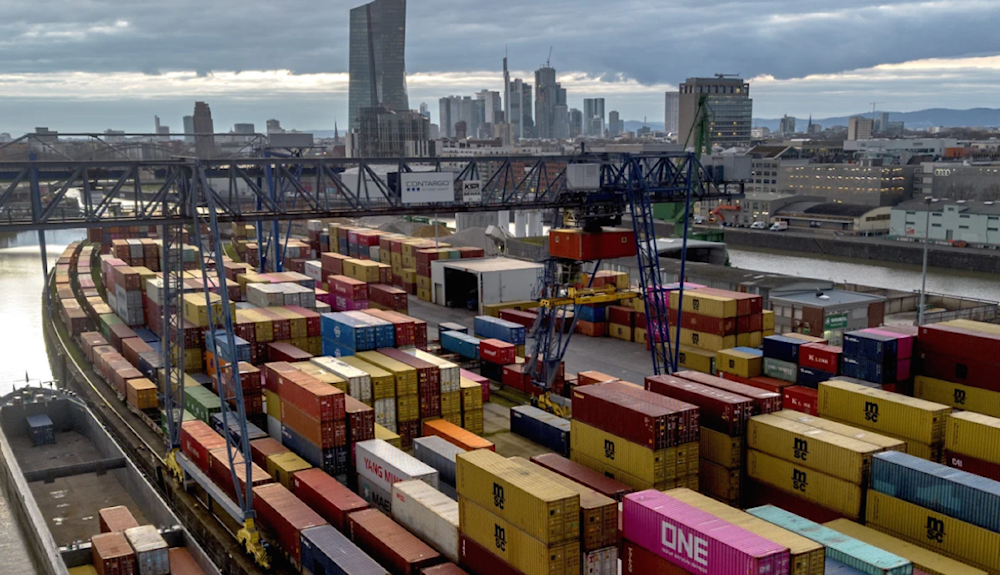German economy unlikely to resume growth in 2024
In a monthly report, the German Central Bank provided a grim outlook.
-

Containers are pictured in the small harbor in Frankfurt Germany on February 13, 2024. (AP)
The faltering German economy is anticipated to enter a recession in the first quarter of this year and will not recover until the end of 2024, according to the central bank's monthly report issued Monday.
The short-term picture for the German industry is "rather gloomy" due to ongoing deterioration in both domestic and foreign demand. Domestic demand would most certainly continue to be hindered by rising financing costs, particularly for projects. The Bundesbank additionally described that confusion over topics such as climate legislation will also weigh down the economy.
According to the bank, industrial output in all sectors fell in January compared to the fourth quarter of 2023, owing mostly to a drop in international orders. The most significant reduction was in car production.
Bundesbank researchers estimate that private consumption will expand "tentatively" in the initial quarter of the year, as consumers remain wary about purchasing.
Read more: German FM describes German economy as an 'unfit man'
The economists pointed out that there is little evidence of a recovery in the economy in the second quarter or later in the year, detailing that “Real gross domestic product will probably decline again slightly in the first quarter of 2024… The German economy continues to experience headwinds from various directions."
Germany was the only G7 economy that fell last year. Most commentators blamed the poor performance on the energy crisis that erupted following the war in Ukraine after heavy sanctions on Russia resulted in the bloc losing access to inexpensive Russian energy. According to official figures, Germany's industry-intensive economy suffered a heavy blow and entered a recession.
As German manufacturers have been struggling to maintain cost-competitive products, the loss of cheap Russian natural gas due to the war in Ukraine has served as a "final blow" for Germany. The country's reign as an industrial superpower seems to be "coming to an end," Bloomberg News said on February 11.
Germany's economy to worsen in 2024
According to Bloomberg last month, investors who lend money to German firms are now demanding higher interest rates than companies in the rest of the eurozone. This is due to several circumstances, including a weak economy, real estate issues, and Germany's reputation as having the highest corporate distress score in Europe.
This problem resulted from rising energy prices, which began when Germany joined the West's anti-Russia sanctions. As a result, the government was forced to shut off its supply of inexpensive gas to its energy-intensive industrial sector.
Brian Mangwiro, a fund manager at Barings, told Bloomberg that Germany's economy, in particular, is not only slowing like all manufacturing economies but is also facing challenges in the auto sector with competition coming from China,
“Germany is really in trouble…All the big manufacturing economies are slowing, but in Germany, this is compounded by higher energy costs. There are also challenges in the auto sector with competition coming from China."
While speaking at a Bloomberg event in Frankfurt, German Finance Minister Christian Lindner stated that the country's inability to generate growth in the economy is bringing more poverty.
Lindner, the leader of Germany's Free Democratic Party, expressed, “We are no longer competitive...We are getting poorer because we have no growth. We are falling behind.”
Businesses have borrowed far less money to invest in manufacturing, machinery, and technology. This demonstrates that Germany's economic development is stifled in the long run, since businesses are now more focused on solving their challenges.

 4 Min Read
4 Min Read








